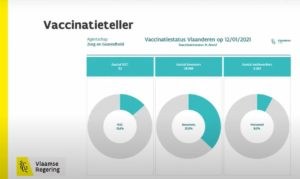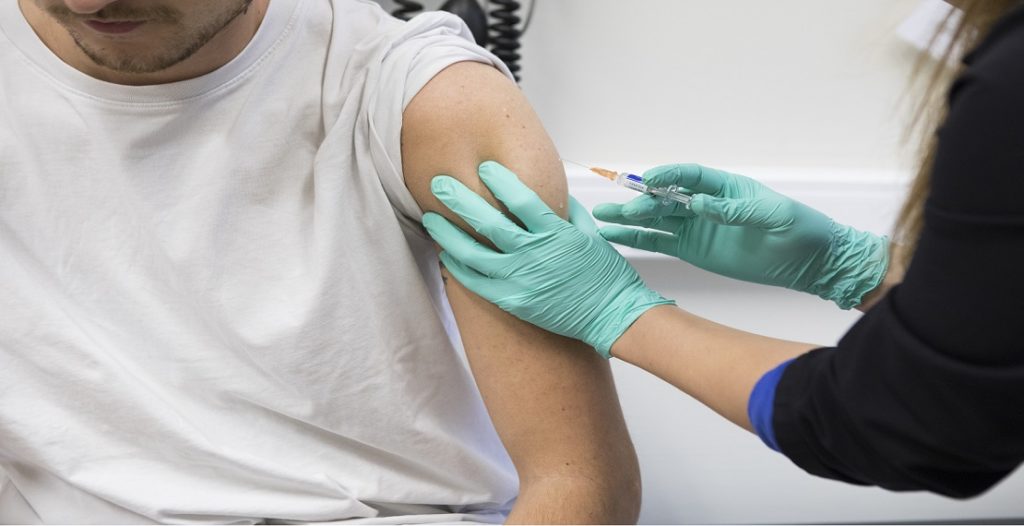Flanders is launching a "vaccination counter" to allow people to keep track of the number of people who have already been vaccinated in the Region, Flemish Minister-President Jan Jambon announced on Wednesday.
The Flemish government wants to communicate "very transparently," and is launching the counter so everyone can follow the status of the vaccination campaign, according to Jambon.
The first figures about the vaccinations in the residential care centres will be published on Wednesday afternoon, and from then on, the counter can be permanently consulted at laatjevaccineren.be ("get vaccinated") for the latest updates.
"To date, we have vaccinated 34,500 people in Flanders in 112 of the 827 residential care centres. That is 13.6%," said Jambon, adding that it concerns 28,000 residents and 6,500 staff members.
It will give a daily overview of how many people have received a first vaccine dose, the percentage of Flanders' total population that has received its first injection, and how many people have already received a second shot.

First graph show the number of residential care centres have been vaccinated. Second shows the number of residents, third the number of staff members. Credit: Flemish government
"We are right on schedule, and residents and staff in a total of 400 residential care centres will be vaccinated by the end of this week," Jambon said. "We will be able to vaccinate people at an ever-increasing rate over the next few weeks."
"As you know, the Pfizer vaccine requires two doses, but it is possible that in the future, vaccines will come onto the market that only require one vaccination," Jambon said.
"The vaccination counter will tell you - and us - whether we are doing well in the fight against this terrible virus," he said, adding that it will also encourage everyone to keep going.
Related News
- Flanders will send out personal invitations for vaccinations from next month
- Flanders will vaccinate everyone before the summer
"We are on our way towards the threshold of at least 70% vaccinated people in Flanders, which we may consider the gateway to hard-earned freedom," Jambon added.
However, it will be a long road with several stages, according to him. Once the residential care centres have been vaccinated, the Flemish vaccination teams will go and vaccinate hospital staff and primary care workers in February.
From March, a new phase of the campaign will start, and all people over 65 years old will be invited first, followed by people between 45 and 65 years old with underlying conditions, and then the rest of the Flemish population.
With this campaign, Flanders will be able to vaccinate everyone who wants to before the start of the summer, if the pharmaceutical companies continue to produce and deliver sufficient vaccines.
Maïthé Chini
The Brussels Times

